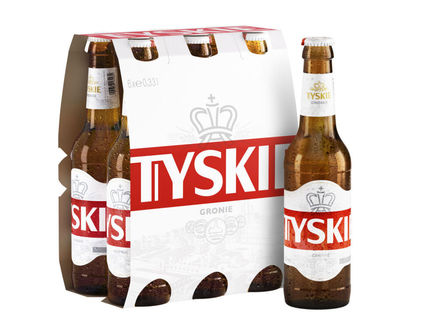Rescue for the food rescue startup: online supermarket SIRPLUS gets off to a fresh start
It's here - salvation for the rescuers: SIRPLUS, the online supermarket for rescued food that slipped into insolvency in January of this year, has been rescued itself and is back online as of today.
The restart was made possible when co-founder Raphael Fellmer, together with three investors who were already involved with SIRPLUS and a new investor, bought the brand, domain and social media accounts from the insolvency estate. This has now breathed new life into the SIRPLUS mission.
After organic and vegan, SIRPLUS made rescued socially acceptable
Launched in 2017, the online supermarket SIRPLUS made rescued food socially acceptable and food rescue mainstream. Founder Raphael Fellmer had been campaigning against food waste and for the appreciation of food since 2009. After years as a garbage diver, he lived without money for 5.5 years - or in a "money strike", as the father of two calls it - and successfully helped to establish the foodsharing movement during this time. Over 600,000 people in the DACH region now rescue surplus food from over 15,000 bakeries, supermarkets and market stalls. With SIRPLUS, the Berliner made food rescue socially acceptable and saved over 4 million kilograms of food from disposal with 100,000 customers. The majority of the products were too close to their best-before date and came primarily from producers and wholesalers who were unable to sell them normally. The Berlin startup delivers them conveniently to consumers' homes with DHL Go Green. Surplus food was thus fed back into the cycle, which in turn reduced food waste. In addition, SIRPLUS worked with Welthungerhilfe to provide over 500,000 school meals in Burundi. In the meantime, the Berlin-based start-up also ran stationary stores, known as savior markets, which had to close in the wake of the coronavirus pandemic.
SIRPLUS 2.0: Working together in a new constellation to combat food waste
In order to stand on firm ground right from the start, Raphael Fellmer is now joining forces with Alexander Bernikas from TrendRaider, who, as co-founder of SIRPLUS 2.0, is primarily responsible for operations, customer satisfaction and business development. With TrendRaider, Bernikas has built up a successful business around sustainable food and lifestyle products in bootstrapping style without external financing. This makes him the perfect complement to co-founder Raphael Fellmer's plan to return to the beginnings and his own strengths with the relaunch of SIRPLUS: Community building, a small team instead of rapid growth and instead getting into the black faster through organic growth, education and participation instead of an expensive advertising battle on Meta, Google & Co.
Together, the two founders are now also using a different lever that points back to the roots of the food sharing movement: Close partnerships and collaborations are intended to optimize the cost structure and thus create long-term and fruitful partnerships. The popular subscription-surprise model remains and benefits from Bernika's ten years of experience in the e-commerce box business. However, individual orders for individual rescued favorite products will also continue to be available. In addition to rescued food, the product portfolio will in future also include rescued household items, surplus and sustainable wellness and lifestyle products. Customers will receive the rescued products directly from a single source in Berlin-Weißensee. "
We are going back to the beginning, but I am convinced that our community will come back to us," says SIRPLUS co-founder Raphael Fellmer. "I am infinitely grateful that the SIRPLUS journey continues, because our vision of a world in which everyone has enough to eat is more relevant today than ever: every minute, a full truckload of food is thrown away in Germany alone, and around 50% of this waste occurs directly in households. Yet we could feed the 800 million starving people worldwide three times over with the food wasted globally. In addition, the latest studies assume that 1/10 of global greenhouse gases are caused by food waste. Our challenge therefore remains to educate and raise awareness of this important issue without moralizing."
"Quite apart from our ecological and moral obligation to treat food and resources with care and appreciation, cheap food is more in demand than ever in times of inflation and crisis. Simply contributing to climate protection and saving money at the same time is and remains a successful concept for me - if implemented correctly," adds Berlin co-founder Alexander Bernikas.
Note: This article has been translated using a computer system without human intervention. LUMITOS offers these automatic translations to present a wider range of current news. Since this article has been translated with automatic translation, it is possible that it contains errors in vocabulary, syntax or grammar. The original article in German can be found here.
Other news from the department business & finance
Most read news
More news from our other portals
Something is happening in the food & beverage industry ...
This is what true pioneering spirit looks like: Plenty of innovative start-ups are bringing fresh ideas, lifeblood and entrepreneurial spirit to change tomorrow's world for the better. Immerse yourself in the world of these young companies and take the opportunity to get in touch with the founders.






























































